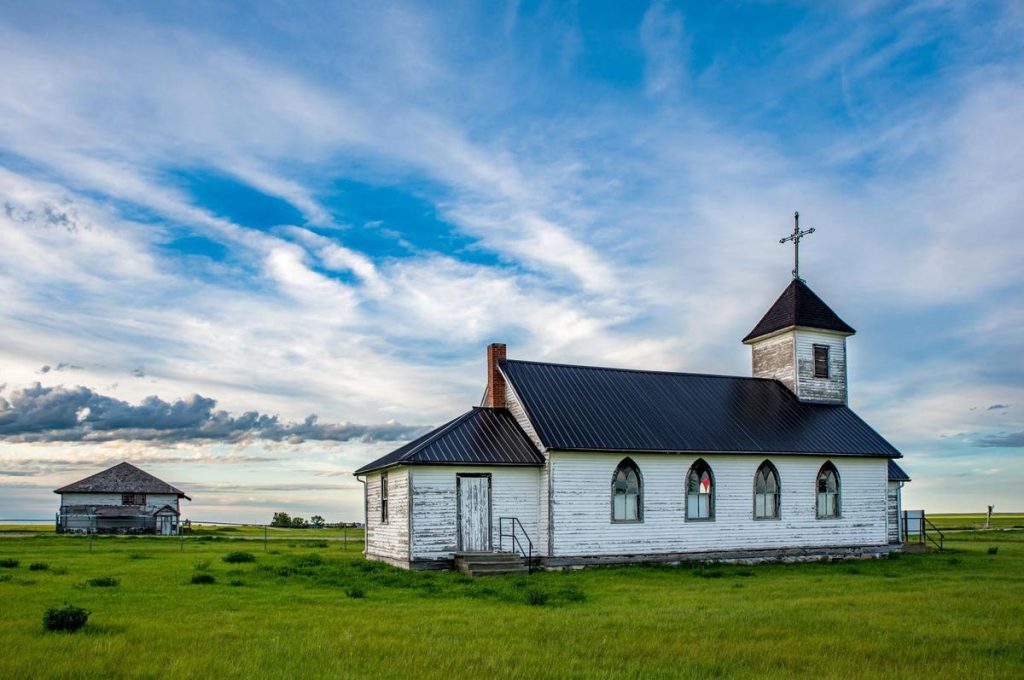Since their creation, charter schools have been required to function as non-sectarian, secular educational institutions. There can be no such thing as a religious public charter school. Now a two-pronged legal challenge could change that.
There are two presumptions that bar taxpayer-funded charter schools from operating as religious institutions.
1) Charter schools are public schools.
2) Charter schools (because they are public schools) may not be religious schools.
Now both presumptions face a challenge.
1) Peltier v. Charter Day School, Inc.
Back in 2016, North Carolina’s Charter Day School was sued over a dress code that barred girls from wearing pants (to preserve the fragility of young women). In 2019, a federal judge ruled the dress code unconstitutional. In 2021, a U.S. 4th Circuit Court of Appeals panel tossed out the judge’s ruling. In July of 2022, the full 4th Circuit Court reversed the panel decision.
At that point, the case headed for the Supreme Court, though they have not yet decided what they’ll do with it. They have even asked the Biden administration to chime in.
Why does a case about a dress code matter?
Because the case hinges on whether or not the charter school is a “state actor” aka an actual public school.
If a charter school is a public school, the reasoning goes, then it must play by public school rules (in this case, no violating Title IX with sexist dress codes).
But if a charter school is not a public school, then all bets are off.
A ruling for the school would allow states to establish charters as a parallel Constitution-free zone where restrictions against discrimination and any wall between church and state would simply not apply. It is no surprise that the very conservative Great Hearts charter chain has filed an amicus brief on the charter’s behalf.
If the Supreme Court hears this case and decides that charter schools are not truly public schools, then states can go ahead and establish religious charter schools.
2) Oklahoma and St. Isidore of Seville
Last December, Oklahoma Attorney General John O’Connor skipped ahead and issued an opinion that, given other recent Supreme Court decisions, the court would probably throw out Oklahoma’s law restricting religious charter schools.
In sum, we do not believe the U.S. Supreme Court would accept the argument that, because charter schools are considered public for various purposes, that a state should be allowed to discriminate against religiously affiliated private participants…
In other words, just because charter schools are state actors, that doesn’t mean they can’t also be religious. O’Connor’s successor Gentner Drummond withdrew his opinion, but Oklahoma’s governor, ed chief, and virtual charter board ignored Drummond and approved a religious charter anyway: the St. Isidore of Seville virtual charter, a cyber school that was proposed by the Archdiocese of Oklahoma City in collaboration with the Diocese of Tulsa.
While some supporters of the religious charter are banking that the argument in Peltier will stand and charters will be deemed non-public schools, O’Connor’s original argument rested on Trinity Lutheran, Espinoza, and Carson, three cases that poked holes in the wall between church and state. Kevin Welner, director of the National Education Policy Center at the University of Colorado at Boulder’s School of Education, warned that in light of these three decisions, “states will probably be forced to let churches and other religious institutions apply for charters and operate charter schools.” The fact that charter schools may be described in state law as public schools will not matter.
Where could this take us?
The Supreme Court could decide to hear Peltier and decide that charter schools are not public schools, and therefore the taxpayers must fund them.
Or the Supreme Court could, some day, hear the legal challenge to Oklahoma’s religious charter school and decide that a public charter school cannot be denied taxpayer funding just because it’s religious.
Either of those rulings might have seemed unlikely a decade ago, but a decade ago it would also have seemed unlikely that the Supreme Court would rule that a public school employee can lead students in a public prayer, and they’ve already done that.
As Justice Sotomayor noted in her dissent on Carson, “in just a few years, the Court has upended constitutional doctrine, shifting from a rule that permits States to decline to fund religious organizations to one that requires States in many circumstances to subsidize religious indoctrination with taxpayer dollars.”
Folks on many sides of the charter school debates have long argued about whether charter schools are or are not public schools. With these two possible approaches, supporters of religious charter schools may be able to win no matter how the public or not public debate is settled.
Read the full article here










